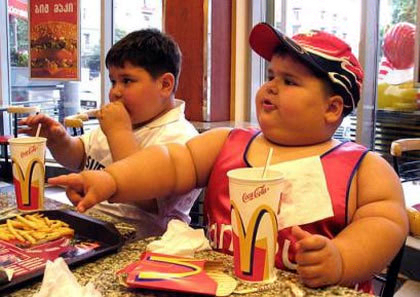Washington D.C., May 9: Do the middle age feel much stressful now, and seems to have changed over time, if compared to the life in the 90s? Well, this recent study indicates that it might be true.
The study has signalled to the fact that life may become more stressful majorly for middle-aged people than it was in the 1990s. The researchers reached this analysis even before the novel coronavirus started sweeping the globe.
A team of researchers led by Penn State found that across all ages, there was a slight increase in daily stress in the 2010s compared to the 1990s. But when researchers restricted the sample to people between the ages of 45 and 64, there was a sharp increase in daily stress.
"On average, people reported about 2 percent more stressors in the 2010s compared to people in the past," said David M. Almeida, professor of human development and family studies at Penn State.
"That's around an additional week of stress a year. But what really surprised us is that people at mid-life reported a lot more stressors, about 19 percent more stress in 2010 than in 1990. And that translates to 64 more days of stress a year."
Almeida said the findings were part of a larger project aiming to discover whether health during the middle of Americans' lives has been changing over time.
"Certainly, when you talk to people, they seem to think that daily life is more hectic and less certain these days," Almeida said.
For the study, the researchers collected data from 1,499 adults in 1995 and 782 different adults in 2012.
Almeida said the goal was to study two cohorts of people who were the same age at the time the data was collected but born in different decades. All study participants were interviewed daily for eight consecutive days.
During each daily interview, the researchers asked the participants about their stressful experiences throughout the previous 24 hours.
They asked questions related to arguments with family or friends or feeling overwhelmed at home or work, so and so. The participants were also asked how severe their stress was and whether those stressors were likely to impact other areas of their lives.
"We were able to estimate not only how frequently people experienced stress, but also what those stressors mean to them," Almeida said.
"For example, did this stress affect their finances or their plans for the future. And by having these two cohorts of people, we were able to compare daily stress processes in 1990 with daily stress processes in 2010," Almeida added.
After analyzing the data, the researchers found that participants reported significantly more daily stress and lower well-being in the 2010s compared to the 1990s.
Additionally, participants reported a 27 percent increase in the belief that stress would affect their finances and a 17 percent increase in the belief that stress would affect their future plans.
Almeida said he was surprised not that people were more stressed now than in the 90s, but at the age group that was mainly affected.
"We thought that with economic uncertainty, life might be more stressful for younger adults. But we didn't see that. We saw more stress for people at mid-life," Almeida said.
"And maybe that's because they have children who are facing an uncertain job market while also responsible for their own parents. So it's this generational squeeze that's making stress more prevalent for people at mid-life," he concluded.
 Clegg said that for the first time, they had identified remarkable differences in the sexes regarding how the body responds to high-fat diets. In the study, the mice were given the equivalent of a steady diet of hamburgers and soda. The brains of the male mice became inflamed and their hearts were damaged. But the female mice showed no brain inflammation and had normal hearts during the diet.
Clegg said that for the first time, they had identified remarkable differences in the sexes regarding how the body responds to high-fat diets. In the study, the mice were given the equivalent of a steady diet of hamburgers and soda. The brains of the male mice became inflamed and their hearts were damaged. But the female mice showed no brain inflammation and had normal hearts during the diet.




Comments
Add new comment